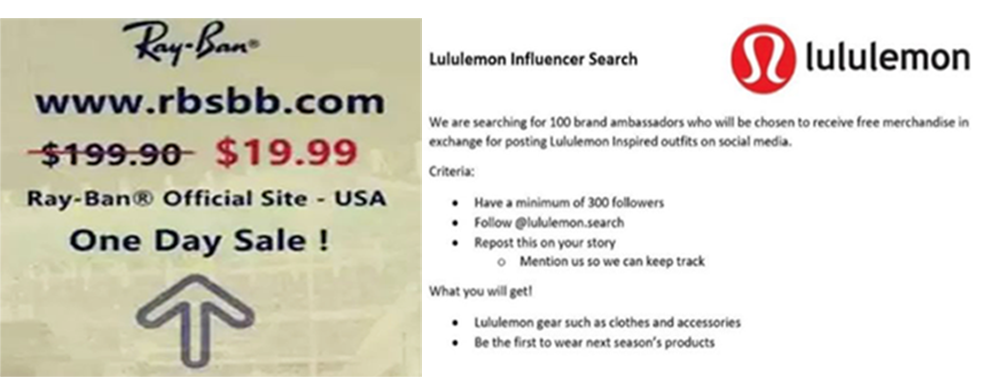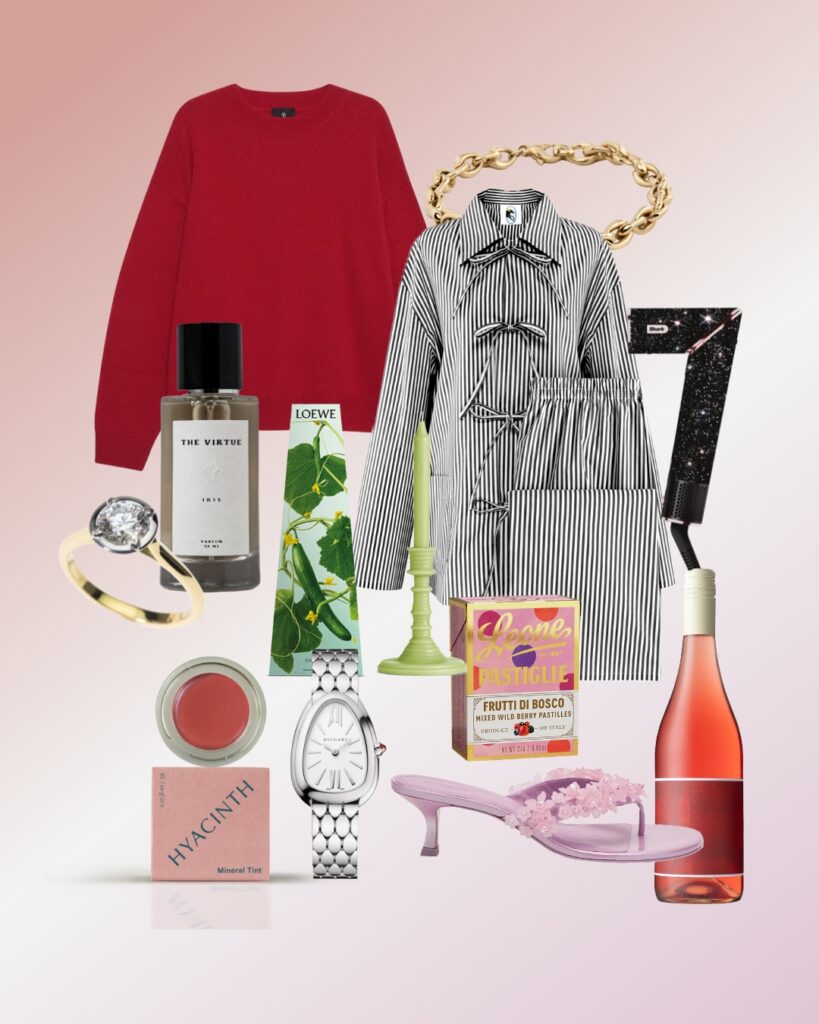“You have won $1,000,000, enter your credit card details and click here to claim your prize!” Sent from a Nigerian prince? Seems legit…
Internet and email scams have been part of our online presence for what seems like forever now, and we have become accustomed to filtering them out as best as we can. But what happens if you can’t spot a scam? Or if you accidentally click on a button and next thing you know, your account is hacked and your bank account is $1,000 in overdraft? Think you’re a tech-savvy superstar and too smart to fall victim to a scam? Well, it can happen to any of us.
Read on to find out how to spot and avoid getting scammed…
How to spot an online scam
The first step is to be able to spot a scam, so get out your geek-but-chic glasses and let’s look a bit closer. Take for example the recent epidemic that is taking over Instagram stories: ‘The Lululemon Fan Influencer Search’, which suggests that by reposting a certain image to your story, you can win Lululemon activewear. First rule: If something seems too good to be true, that’s usually because it is. Upon clicking on the @lululemon.search account, you’ll see immediately it’s not verified but seems authentic due to its huge following.
If an account is not verified but has a huge following and is claiming to be linked to a brand or influencer, it has probably:
- Paid for followers
- Run a fake competition (often saying that you need to follow that account to win)
- Used fake followers to look genuine.
By following these fake accounts you are making yourself an easy target for your account to get hacked.
Another long-standing scam which Facebook just can’t seem to kick, is the infamous Ray-Ban scam. $20 Ray-Bans have never looked so… well, bad, and the same scam has rocked the Instagram world lately. This is where numerous accounts have been hacked into by an anonymous East China website, which has been collecting information on accounts and uploading images of ‘official Ray-Bans’ with discount codes. On Instagram, numerous people have been losing their accounts to the scammers. On Facebook, the same scam filtered into people’s statuses and direct messages. This scam has been lingering like a bad smell for a couple of years, and it’s safe to say it’s not leaving anytime soon…
Recognise these? 
8 tips to help you from getting scammed
Want to avoid having your followers thinking you’re now a sunglasses seller? Or worse, getting locked out of your own account? Here are some hot tips to make sure your account stays away from the scammers:
- Change your password regularly and make it somewhat hard to hack – This is a no-brainer. You will easily get hacked if your account’s password is ‘password’.
- Don’t click on suspicious-looking buttons. No good ever comes out of this.
- If a scam has affected you, get your inner policewoman out, and report it straight away to the platform you’re on. This way if your account has been hacked into, you may be able to get it back in the nick of time.
- Use two-step verification on all of your online accounts. It involves you having to prove it is you after you log in, like a seatbelt for your password.
- If the too-good-to-be-true competition seems somewhat suspicious, it’s probably because it’s a fraud. Always check on the account to see if it is verified and if you’re not too sure, go onto the followers’ list and see if ‘real people’ are following the page, not fake accounts.
- Triple check: Is the link you just clicked to buy some new Ray-Bans secure (ie does it have a little padlock beside the website URL)? Do they have a privacy policy? Does it look legit? If you’re answering no to any or all of these questions, then maybe it’s best to not give them your debit card deets.
- Always check the website URL to make sure it is official, and therefore safe, especially if you are purchasing something online and it takes you to another page, this may be a scam.
- Google ad blocker is a must-have, as it helps by stopping those annoying ‘fake virus’ pop-ups. Getting blocking girl.
Lastly, go with your gut. She knows best.
Words: Gabrielle Tutheridge
Photos: Getty Images and Instagram











